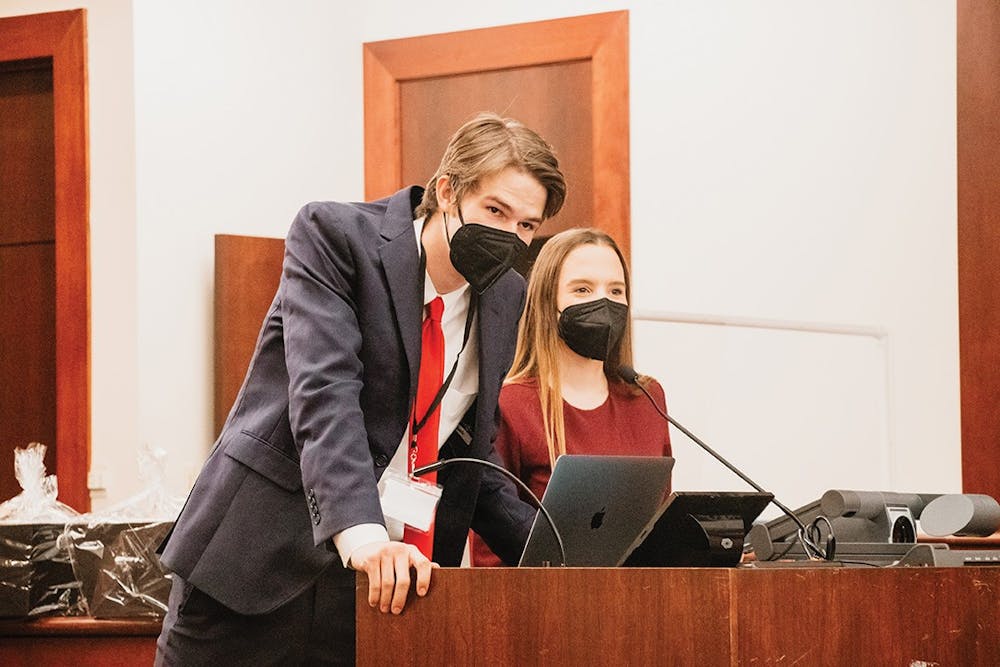For many students, spring brings new classes, better weather and thoughts of spring break trips. However, for USC mock trial, the spring semester brings a whole new set of challenges as it prepares to face the toughest competition of the year.
The spring semester is the mock trial team's competitive season. It will compete in a simulated trial where students act as the lawyers and witnesses arguing a fictional case against some of the best teams in the nation according to mock trial president, Ben Wallace.
Students are evenly spread out amongst three teams in the fall, with students of various experience levels on each. However, the three teams are "stacked" in the spring. This means that members with the highest scores from previous tournaments are placed on the A-team, the second-best are placed on the B-team and the third-best are placed on the C-team.
Wallace said this system gives students a chance to learn during the first semester and then use the second semester to focus on advancing through the three elimination-style tournaments hosted by the American Mock Trial Association.
"The spring semester is fantastic for really, I guess, stepping outside of your comfort zone and hitting really hard teams and seeing how you can prove your knowledge and role in mock trial," third-year accounting student Wallace said.
Regardless of which team the students are on, they all get an opportunity to face tough opponents that push them to better their skills.
"So, in this semester, every single competitor is going against better — like bigger and better teams. This semester not only offers another opportunity for our competitors and members to improve their skills, but also allows them to kind of test their knowledge of mock trial against better teams," Wallace said.
According to Wallce, the spring semester doesn't just encourage growth as a competitor; it also provides multiple opportunities for students to develop as a leader.
Current B team captain and newly elected vice president James Bray stepped into the role after serving as a team captain for three semesters.
He said he would encourage any team member wanting to improve to apply for one of the two captain roles available for each team.
"I think that a lot of people end up feeling like they don't have enough experience to be a captain. And I think the way that I would encourage people is to know that where you are right now, you grow more as a captain than you would think you do," Bray, third-year philosophy and criminal justice student, said. "You kind of learn from teaching others as well."
Outside of executive and captain positions, Bray said there are also multiple opportunities for members to be chairs and help run events like tournaments and fundraising efforts, which provides opportunities for individual growth and help make the team the best it can be.
While the spring season can get intense, faculty advisor Mark Brown said mock trial is a beneficial experience beyond just winning a spot in the coveted national tournament.
"It is a wonderful learning experience, the things that they learn really help them if they're hoping to go to law school or even if they're just on the communication side, learning how to communicate, how to be persuasive," Brown said.
While Wallace said he hopes to walk away this semester with a top 10 win at nationals, he said that the most important thing is knowing his teammates walked away from the season feeling better than when they started.
"Apart from wanting to win, our main goal is obviously to provide a beneficial opportunity and environment for 40 kids on campus," Wallace said. "So if people leave this spring competitive semester having been successful and having really enjoyed their time competing, that's a perfect world in my mind."

